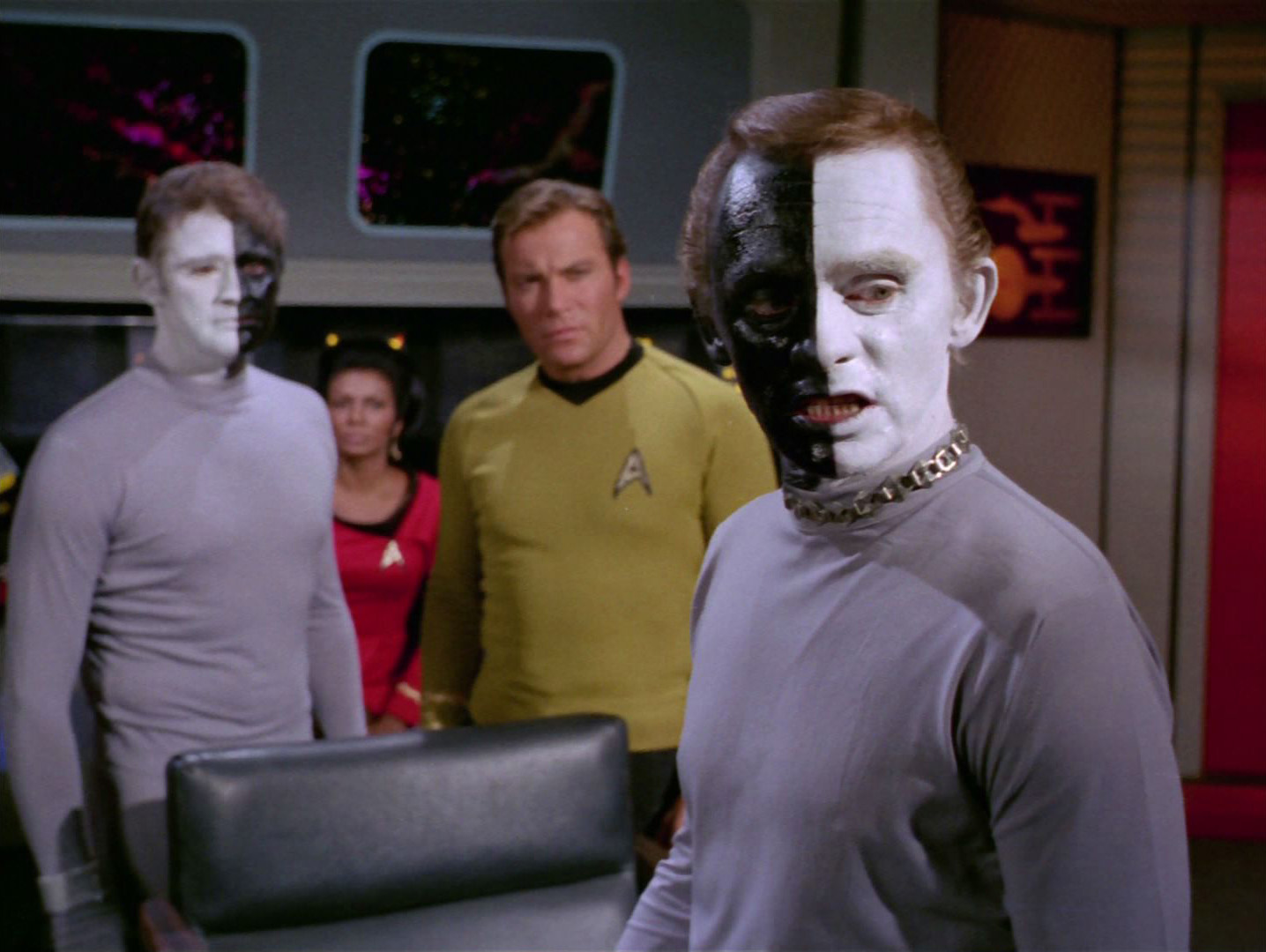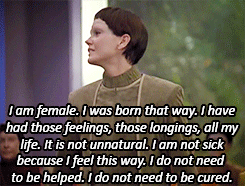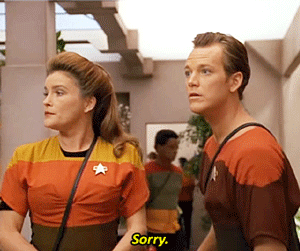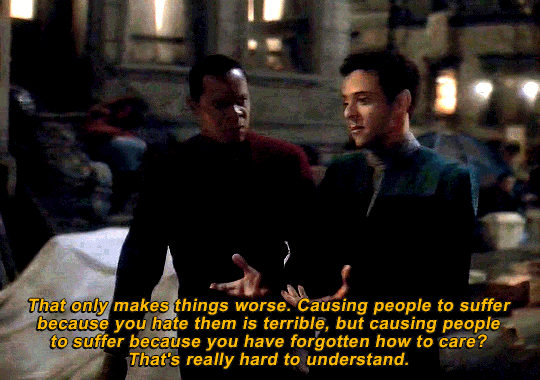Finally, these are concepts that actually hurt real people- every time someone makes that "token" argument, there's another character that might not get written. There's another actor that might not get a role.
Like, twenty years ago, that was totally a valid argument. Maybe ten too.
Now? I don't really see that happening. Even non-binary characters are increasingly appearing on shows, albeit usually in minor roles (c.f. The Diplomat, Will Trent, etc.).
You're warning of backsliding, and I just don't believe that is going to happen without major societal issues entirely unconnected to how Star Trek is discussed. Especially as people with conservative social values keep proving they're absolutely terrible at making shows with mass appeal.
I don't really buy that pointing out characters are tokens is inherently offensive, especially as it can absolutely include white male characters, and has -
Token White - TV Tropes - but I do think it should be used more cautiously than people are in this discussion.
(I instantly thought of the Desmond's example myself)
But the problem is, people often claim a character is a token
when they aren't. And I think this is the problem here. This was the point I was trying to make, which I apparently didn't make well enough for you to understand. Let me lay it out, maybe it'll make more sense:
1) Some characters genuinely do fit the definition of "token" -
Token Minority - TV Tropes
2) Some characters do not.
3) If people don't connect with characters, they tend to rationalize why they didn't connect, rather than simply going "bad character" or looking closely at the writing issues.
4) Unfortunately one of those rationalizations, usually but not exclusively from white people, particularly men, is that a character is a "token".
I don't think any Disco characters actually are "tokens" (except if we're counting like, cyborg representation, in which case I'd argue we'd had two) - indeed Lorca was perhaps closest, before they revealed he was a major weirdo (which didn't take long). Certainly Michael wasn't, nor Adira. Adira's problem was absolutely one of rationalization - because the character didn't have much depth and people didn't connect with them, and the most salient point about them, to a least some people, was their non-binary-ness, people tended to rationalize them as a token. Personally the most salient point was their Wesley-ness, for me!
So I guess I sort of agree overall - people should think carefully before using the term. But I don't think it's entirely without value as a descriptor.






